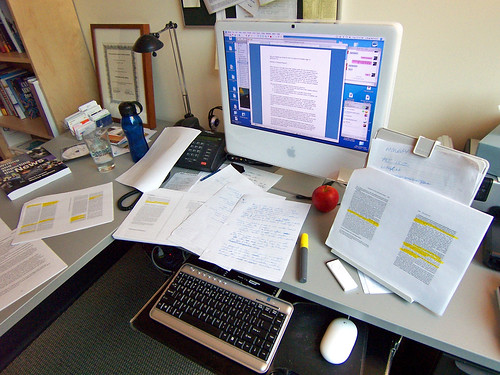
The They Say / I Say guide has good information about integrating sources effectively in academic writing. You will also find the tutors at the Writing Center are knowledgeable about the best way to incorporate source material into your writing. This is also a nifty site with practical informaiton:
We have a guide for that!
In a hurry? Here are some quick guides that show the most common kinds of citations.
The trick to effective writing using sources is remember that sources come from people, and the people you cite are helping you build a case, make an argument, or explain ideas. Use your sources strategically - as allies and informants.
From a reader's perspective, it's helpful to know who you are relying on, so try to introduce your sources with a signal phrase that tells your reader where the source came from and why it's worth paying attention to. Here are some examples.
Though sources are important, how you talk about them in your own words is paramount. If you are paraphrasing sentences from a source, be careful that you aren't copying the sentence and just changing a word here and there. Even if you cite that source, copying too closely is considered plagiarism. Limit your use of direct quotations to those instances when accuracy of a key phrase is important or when you want to call attention to the particular wording of an idea.
In most cases, your best bet is to know your material well enough that you can set a source aside and write about its ideas in your own words. Otherwise, you run the risk of simply compiling a data dump or creating a patchwork of quotations. When you can sum up the gist of a source - its main point - instead of quoting from it excessively, that will save your reader time and will demonstrate that you really know the material. It will also leave more room for you to put your own stamp on the ideas you are writing about.
For more about how plagiarism is handled at Gustavus, see the college's Academic Honesty Policy.

photo courtesy of Alfred Hermida
Connect with a Librarian: All research help options.
24/7 Chat: When Gustavus librarians are not available, librarians from other institutions will be available to help you 24/7.
Research Help Appointments: Schedule a one-on-one consultation with a Gustavus librarian; both in person and virtual appointments are available.
Research Next Steps Program: Fill out this form at any point in your research; a librarian will respond with suggestions and tips within two business days.
E-mail: folke@gustavus.edu (please include your name, the best way to contact you, and a brief description of your research needs)
This work is licensed under CC BY-NC-SA 4.0